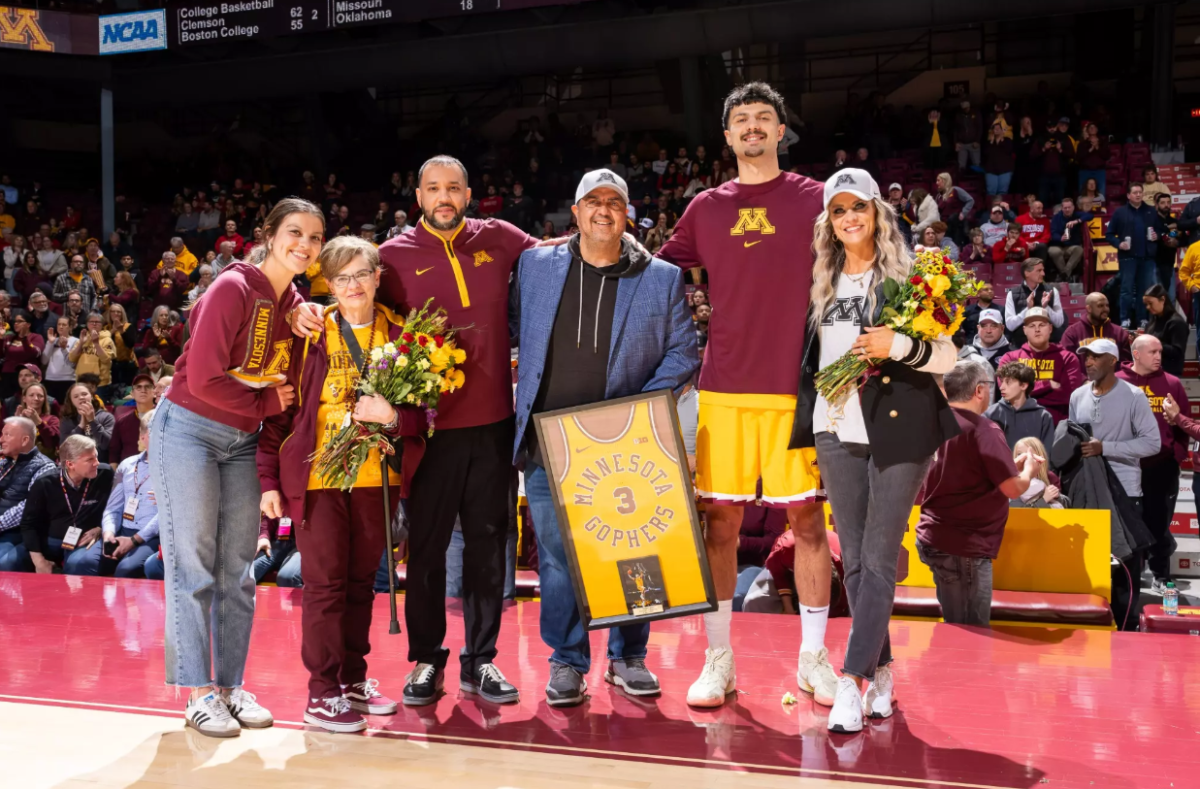When Hassan Mead crossed the finish line after winning the Roy Griak Invitational cross country race his senior year of high school, he wanted water.
After running 3.1 miles in 15 minutes, 48 seconds – just over five minutes per mile – his throat was dry and his body dehydrated. In his words, he was “thirsty like crazy.” But Mead walked right past the water table and found the nearest shade tree to sit down and catch his breath.
The current Gophers freshman was observing the Islamic period of Ramadan, when most practicing Muslims forego eating and drinking while the sun is up, so he hadn’t consumed food or drink since early that morning and would have to wait until sunset to rehydrate himself.
“Ramadan’s part of my religion and that’s really important to me,” Mead said. “It makes some things tougher, but you just have to suck it up and still believe that you can do everything you could do without fasting.”
Muslims are allowed to make up a fasting day later if fasting would harm their health, and while he did break his fast for one day this fall, Mead never did during high school. It didn’t make much of a difference, as he won every state race he competed in and set a Minnesota record in the state championship race.
After winning the Griak, one of the most prestigious cross country races in the nation, Mead went on to take fourth place at the Foot Locker Nationals, only eight seconds behind the winner.
“I think fasting makes me mentally tougher than some of the other guys, in the end,” Mead said. “When I would race the really good runners and I wasn’t fasting I’d be like, ‘Oh, this is easy. My stomach is full, I can drink water; I should be able to compete without a doubt.’ It gives me a big-time mental edge.”
Getting to Minneapolis South was a long journey for Mead.
He moved to the United States from Somalia in 2000 when he was 10 years old. His father, Yasuf, had moved to America five years earlier to find a job after graduating from a Somalian university, and the separation had begun to wear on the family, Hassan said.
The Mead family reunited in Minnesota, but Hassan couldn’t adjust to the cold Minnesota weather and, with the blessing of his parents, moved to California to live with his uncle.
“Moving to California was hard,” Mead said. “It wasn’t as big of a change as moving from Somalia, but it was still a change.
“It was odd. I didn’t get to see my dad for a long time while I was in Somalia, and then we moved here, and then three months later, it was back to not seeing him much.”
Mead was separated from his family for almost six years – spending three years in California and three more in Seattle.
He probably would’ve stayed on the West Coast had it not been for a pair of citizenship appointments back in Minnesota. After flying in for the second appointment, his family decided they couldn’t keep transporting him back and forth from Seattle, and that he should finish high school in Minnesota.
Enrolling at Minneapolis South halfway through his junior year, Mead began to establish himself as one of the best distance runners in the country and college interest began to flood in.
“My first thought moving to Minnesota was, ‘All right, I’ll get through high school but then I’m definitely going back to the West Coast,’ ” he said. “My mind was set.”
Despite that, Minnesota coaches knew they had a chance to land a blue-chip runner, and worked hard to show Mead the positives of the University.
“When I learned more about Minnesota, I was like, ‘This is what I want. Even though it’s not the best place weather-wise, I can always put on some more clothes and deal with it,’ ” Mead said.
Added head coach Phil Lundin: “It was a tough process because there were a lot of schools that were very interested in him. Luckily for us, he wanted to stay closest to his family. He has very strong feelings for the people that have supported him in his career.”
After enrolling at Minnesota, which is just four blocks from his house, Mead made an immediate impact.
With the cross country team, he was an All-American and the program’s first Big Ten Freshman of the Year. He finished runner-up at both the Big Ten championships and NCAA Midwest Regionals.
“I think a lot of people were surprised by his season, but they probably shouldn’t have been,” said cross country head coach Steve Plasencia. “He has such a great work ethic. Outside of a couple weeks off after the cross country season and a few weeks off during the summer, he’s training all year. It’s more of a way of life for him.”
After a successful indoor season, in which he was named second-team All-Big Ten, Lundin said he expects big things from Mead this outdoor season. Many see Mead as a future national champion.
“He has all the makings of a great runner,” Lundin said. “He has the build and everything, but he also has the heart. Lots and lots of heart.”







